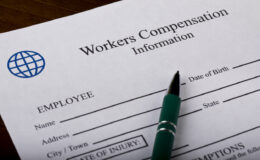By Donna Motley, Vice President of Claims
It has been two years since the start of COVID; and COVID continues to impact our daily lives. As the virus continues to linger and spread, albeit with “variations”, our lives have had to adjust. As we attempt to regain our independence and sense of “normalcy”, society has been attempting a Return to Work. Our department has seen an increase in work injuries, primarily injuries to workers with less than a year of seniority with the employer.
For multiple reasons, injuries to employees of less than a year on the job is common. During and post COVID, employers have been faced with an exodus of employees. Now that people are having to return to work, they may attempt work in a field entirely new to them. Commencing new employment of any kind requires a certain amount of training. The work environment may be foreign to a new hire, the pace may be different from that of their previous employment. Management’s structure most likely is different from what they were previously familiar. Expectations may be different. The actual “tools of the trade” may be new to them. Maybe the new employee hadn’t worked in a year or more and they now have to be at work by 7:00 A.M.
Let’s face it, during COVID, most individuals were “unable” to maintain physical activity. You could have food delivered right to your front door. This is a combination that makes it very easy to gain weight and quickly become out of shape. So now, if you are starting a new job that demands certain physical activities, one can easily sustain an injury. Employers are currently short staffed and there is demand for product. This is a combination that can result in working “extra hours” and earning “extra money”, but can also result in “over exertion”, particularly if you are not accustomed to working, which can easily lead to injury.
Adding to the mix of any job – slip, trip and fall; being hit by an object; repetitive functions; stress; pre-existing conditions; co-morbidities – doesn’t help the situation.
While realizing Workers’ Compensation is a very small part of your company – it is an important part of your company ! No one wants to see their employee sustain an injury, particularly when it could easily be avoided. Training, training, training is probably the best pro-active function you can do to help your company and your employees. Train the employee for the job they were hired to perform; do not take for granted there is a pre-existing knowledge or that common sense will take over. Train the employee in proper company protocol and reporting procedures. Injuries will occur and should be reported immediately! When a newly hired employee is injured, you are not familiar with their history or background, or if there are pre-existing conditions or co-morbidities. For all these reasons, and more, injured workers should be sent to the Occupational Clinic soon after the injury has been reported.
A Monday morning injury claim is ALWAYS scrutinized – marijuana is legal now, what did the employee do over the weekend? Any injury not reported for several days is ALWAYS scrutinized. The longer the time that has elapsed between the alleged date of injury, the date the injury was reported and the date of first medical treatment, the MORE the claim will have to be investigated. As indicated in the past, not everything that happens at work is considered a work incident or work-related injury. Physicians have to rely on the information provided to them by the injured worker AND the employer. The burden of proof is on the injured worker. Following proper protocol makes it easier on everyone. Again, no one wants to see an employee sustain an injury, delayed reporting and delayed treatment will result in a delayed recovery, a frustrated employee, a frustrated employer, and more likely than not, an increase in costs associated with said injury.






